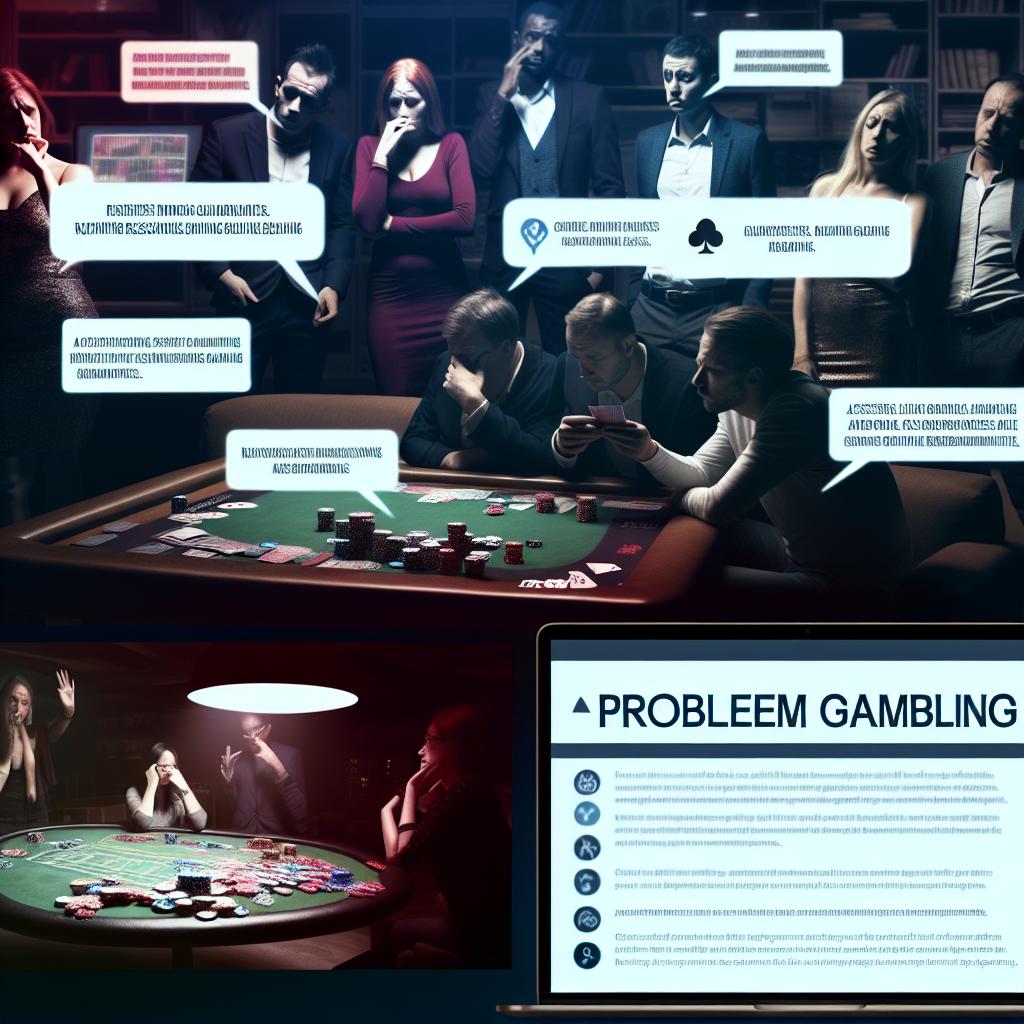Understanding Problem Gambling
Problem gambling, known also as gambling addiction or compulsive gambling, is a behavioral disorder that is characterized by an uncontrollable urge to gamble even when faced with negative consequences. Identifying the signs early can help in seeking timely assistance, which is crucial for both individuals experiencing the condition and those around them. In this article, we will delve into the various indicators of problem gambling and explore its potential ramifications.
Behavioral Signs
The initial behavioral sign of problem gambling is generally a marked shift in how a person conducts their day-to-day life. This may manifest as an individual starting to spend excessive time engaged in gambling activities, often neglecting crucial responsibilities and personal relationships in the process. Additionally, individuals may become covert about their gambling habits, going so far as to hide evidence of their activities or >b>lie about involvement in gambling to avoid detection by those around them.
Financial Issues
Frequently, gambling addiction results in substantial financial problems, primarily due to uncontrolled gambling expenditure. These financial woes can manifest in several ways:
- Racking up large debts or using one’s savings inappropriately
- The constant need to borrow money from friends, family, or even resorting to taking out loans specifically to fuel gambling habits
- Experiencing pronounced financial instability directly tied to gambling losses, making it challenging to maintain financial balance
Emotional and Psychological Indicators
Individuals struggling with gambling often battle a host of emotional and psychological challenges as well, including:
- Persistent feelings of anxiety and depression, commonly stemming from financial pressures or guilt over gambling losses
- Heightened levels of irritability and restlessness that are exacerbated when attempts are made to reduce or cease gambling activities
- The unfortunate loss of interest in activities that were once enjoyable as they become enveloped in the world of gambling
Social Implications
Problem gambling places significant strain on relationships with family and friends. This often leads individuals down a path of social isolation. The shame or embarrassment associated with their gambling behavior might compel individuals to neglect social engagements and withdraw from crucial support networks, driving further isolation and making recovery more challenging.
Consequences on Work and Education
This condition does not limit its impact to personal life; it often spills over into an individual’s professional and educational obligations. Persistent gambling behaviors may lead to several adverse consequences in these areas:
- Declining productivity and a lack of focus, which hampers performance at work or school
- An increased rate of absenteeism, leading to significant consequences in professional or educational settings
- The possibility of losing a job or experiencing academic failures due to excessive gambling behaviors interfering with performance
Recognizing the Need for Help
Recognizing the nature and extent of the problem is a key step toward recovery. Early identification and acknowledgment of these problems by either the affected individuals or their loved ones is vital for timely intervention. Seeking professional help should be prioritized if these signs are evident. Fortunately, numerous resources and supportive networks exist to assist individuals on their recovery journey, including therapy sessions and support groups. For those seeking more information on accessing support services, starting with reputable organizations focusing on gambling recovery is advisable. One might consider visiting organizations like the NCPG which offer specialized services and guidance.
If you or someone you know is displaying these signs, seeking assistance is crucial. Early intervention can significantly pivot the course towards recovery, offering a pathway to regain control over one’s life and embrace a healthier, more balanced lifestyle.
This article was last updated on: May 27, 2025

